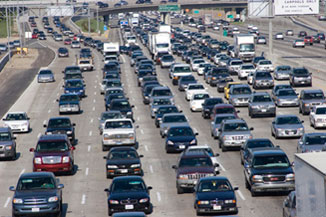In the opening sequence of the brilliant 60's TV series "The Prisoner" Patrick McGoohan walks into the bowels of some government office and slams down his ID and resigns. We're not quite sure at first what he's resigning from, ostensibly from the secret service agency where he has worked. A few seconds later, after he has left, the camera shows his file, clasped to a pulley of some kind, and then moving to a cabinet drawer which open and shuts, and the camera closes on word "Resigned."
My brief and early career as a safety patrol boy in the 6th grade also ended in resignation. Before resigning I'd made every attempt to persuade the authorities (Number Twos) to help me and not indirectly coerce me to resign. But of course I'd been given no choice. Politics were in play.
Here is what happened....
I was the last of a dozen safeties to be chosen for the noble calling, and my assigned post was, of all posts, the farthest away from my house, the most remote of posts, an "outpost," and apparently a post that no one else had wanted. I may not have the times exactly right, but lunch period for the entire elementary school was about 40 or 45 minutes, and because kids left school for lunch, all safeties were required to be at their posts before the beginning and end of lunch period, as well as before and after school. And because of the walking distance from the frontier outpost to my house (5 blocks) and back again I was left with approximately 10-12 minutes for lunch each day. I would cram a sandwich in my mouth and gulp it down in two bites before heading back to my frontier outpost. If I lingered too long at home, chatting with Mum and Nan, I would then have to run to make up the time.
The safety patrol boy situation was clearly untenable and further exacerbated by my knowledge of Marla Stoppard. Marla had a very cushy post, practically a safety patrol sinecure, that was less than a block from where she lived. Marla could get home in a mere half minute without the slightest increase in her gait. Once, when Marla was out sick for a couple days, I was assigned to her post and a fifth-grader substitute was assigned to mine. What a difference those few blocks made! I no longer felt situated on the frontier, crossing kids I barely recognized. Marla's post felt familiar and right, and the real benefit was I had an extra ten minutes for lunch. How glorious! I could eat like a normal kid.
But when Marla returned I was reassigned to Timbuktu or Tiera del Fuego, to the Antipodes, and my anguish was understandably more acute now, because I had tasted the possibilities, had known the rapture and quiet ecstasy of a non-stressful saftety post. If I could hang on to this switch for a few months well then I could even be part of that traditional trip to Washington D.C. that the safeties made in late May or early June of each year.
So began my lobbying effort with the school authorities (Number Twos). My case was based on sound empirical evidence: if Marla had my post it would not be a great hindrance for her, adding about eight minutes on her walk to and from post, and it would still take her less time than it would take me if I had her post, but our lunch times would then be roughly equal, not wildly disparate as they were in the present arrangement. It seemed fair, and I think that Marla and I had even switched posts one day without notifying anyone (she was intelligent and agreeable, mature beyond her 11 years).
But the school authorities (Number Twos) rejected my appeal and I don't recall the specious argument that had gone into their decision, not to mention that they'd somehow discovered the clandestine post switch and weren't too pleased. Yes, there had always been problems with me---I was a refusenik, a troublemaker, a rebellious discipline problem (but not your averagen run-of-the-mill punk or bad kid), an incendiary subversive force who questioned the rules (not unlike The Prisoner), and in their secret weekly conclave (teachers room, coffee and pastry) the school authorities (Number Twos) must have rued their decision to have taken a chance on me in the first place. After all, Marla was a better student, she had better grades, and she was a girl and more reliable. I would simply have to suck it up. I believe parents had maybe called the principal's office and there'd been "words." I think the way the authorities (Number Twos) decision was finally phrased or parentally interpreted for me was that, if my being on safety patrol really meant something, then I would more than gladly make the sacrifice and live with the inconvenience of my frontier outpost.
I knew it would take a bit of courage, but I was not a number, I was a "Free Man" (Ok---Free Boy?) and on a Friday afternoon following a particularly challenging week, I walked into the school office, and tossed my belt and badge on to the authorities (Number Twos) desk. I told them I was through with being a safety, and then I walked out of their office....
I resigned.....

